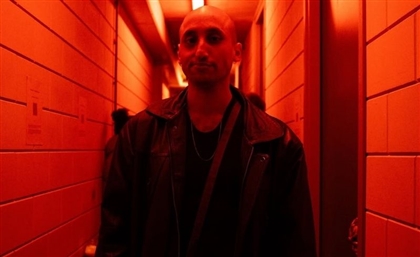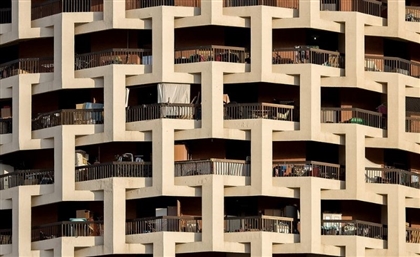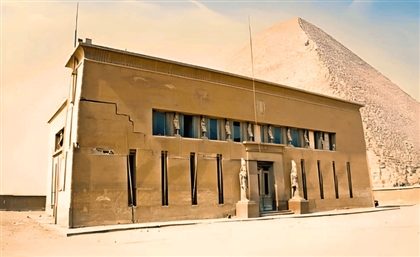Snakeskin’s 'We Live in Sand' Captures Hope Amidst Destruction
Over eight tracks, the Lebanese duo's newest album paints a picture of destruction and despair, but it sparks with subtle but striking moments of hope.

Having began working as the duo we know as Snakeskin in the aftermath of the 2020 Beirut Port explosion, the collaborative work of Julia Sabra and Fadi Tabbal has always been rooted in place of defiance. In the explosion that killed 200 and left 300,000 homeless, Sabra’s own home was destroyed, while her Postcard bandmate, Pascal Semerdjian, suffered serious injury.
Five years on, the dust and rubble from which Snakeskin rose still cakes the duo, and their latest and third album, We Live in the Sand, presents them, arguably, at their darkest and rawest, driven by the war on Gaza in October, 2024 and its eventual spill into Lebanon. While the duo’s work has often been held as a reflection of Lebanon and its surrounding areas’ turmoil, it has often offered more - a sense of resilience, maybe even hope.
The duo’s usual electronically-driven dream pop makes way for a sound that incorporates and recalls the shoegaze of decades past and, while the album’s eight tracks retains a dreamy nature, its instrumental lurches and spectral sauntering drag you into its urgent haze, a reflection of fog that so often rises out of war and suffering..
The album begins with little preamble, immediately striking a frantic tone with the opener, ‘Ready’, which rages into a barrage of disjointed, fractured electronics and harsh textures. While the second track, ‘October Sun’, was the lead single and sets a foreboding mood with its haunting, cyclical melody built from an organ, it’s ‘Ready’ that defines the record’s core and sets the tone.
While most of the album slicks with drama,, ‘Blindsided’ offers a temporary melodic clarity, and is the most conventionally catchy track, yet still delivers the record’s most profound emotional blow. It’s not long before that clarity falls into darkness again, with tracks like ‘Olive Groves’ and ‘Black Water’ crafted as minimal, sorrowful sketches that convey a deep despair. The title track revisits the duo’s initial style, offering a sparse, nursery-rhyme-like piece that feels unsettling. Tabbal shows versatility, shifting from the eighties-era synth melancholy of ‘The Fear’ to the desolate piano of ‘In The Pines’.
There’s an uncompromising authenticity to the album that presents the tracks as a visceral interpretation of the reality of mourning. Amidst the starkness, it would be easy to dismiss hope. But the album peaks in its subtle but striking sparks of defiance and resilience through the grief - and that in itself is hope.
- Previous Article The SceneStyled Red Carpet Edit
- Next Article Tuareg Rhythms Meet Industrial Edge in Amaka Jaji's 'Sahrawi'
Trending This Week
-
Feb 23, 2026



























